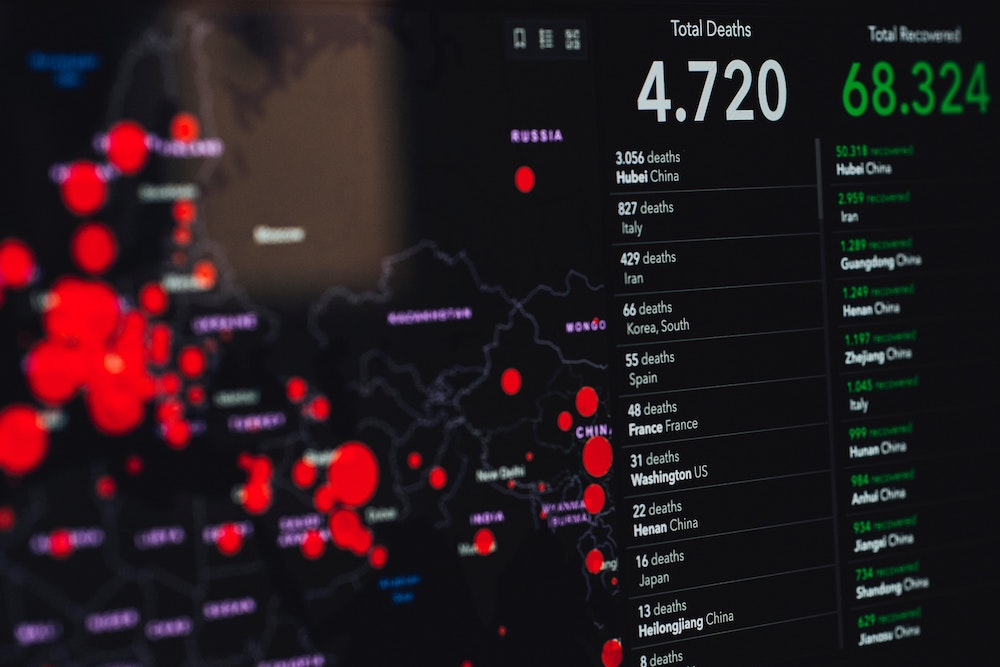There's no lack of uncertainty in our future — while we fight what we know, there are challenges ahead that have yet to materialize. So how can we prepare? The MIT Center for Collective Intelligence, MIT Media Lab’s Community Biotechnology Initiative, and MilliporeSigma have an idea that allows everyone to voice an idea or solution: the Pandemic Response CoLab.
Kathleen Kennedy, Executive Director of the MIT Center for Collective Intelligence, and David Sun Kong, Director of the MIT Media Lab’s Community Biotechnology Initiative, joined us for Manifest Mornings this week to introduce a new open online collaboration platform they've created with MilliporeSigma. They also shared with us why they're hopeful about our future, despite its challenges.
Over the course of our hour with Kathleen and David, we learned a lot about the power we have to improve our current circumstances through collaboration. Below are a few of the big ideas they left us with:
- Massachusetts is doing an outstanding job - We were hit pretty hard here in MA at the start of the COVID-19 pandemic, but overall, we've done a great job managing its twists and turns. While coronavirus cases are spiking in some places, MA is ranked first among the U.S. states for its low "R0," or reproduction number.
- Every one of our individual choices matters - It's easy to think that what we choose to do as individuals won't have a big impact on the population at large, but that idea is incorrect when it comes to a global pandemic. Individual behavior changes, like staying at home and wearing a mask in public, help contain the spread of the virus among those in our communities — ultimately helping contain the spread in our towns, cities, states, and nation. We all have agency in this pandemic.
- Education is crucial with global health issues - Way back in February, David was already focused on advancing scientific communication about COVID-19. He participated in a #BeatTheVirus campaign to meet people where they were at through Instagram Lives and collaborations with musicians. It was important for him to simplify the facts about the virus and reiterate them over and over again while encouraging people to act together.
- We need physical distance, not social distance - David prefers the term "physical distancing" to "social distancing" because humans are social creatures. We need social cohesion more now than ever for our mental health and so we can help solve this crisis. We simply need to figure out how to be social safely.
- We have a lot of tools, we just need people to use them - By now, experts have recommended lots of things people can do to help contain the virus' spread and stay healthy. The challenge we're facing is getting people to use these tools and follow these recommendations. A good example is Hong Kong, where they've only confirmed just over 1,000 COVID-19 cases and seen six deaths, despite the city's dense population. This is possible because over 95% of residents are wearing masks.
- All our ideas are important because this affects everyone - With the Pandemic Response CoLab, everyone is invited to share their ideas and suggestions for dealing with COVID-19 because it's something that impacts all people. For example, we all should be wearing masks when out in public, so anyone's ideas about innovation in the design of masks is relevant. The CoLab is working to engage everyone from scientists to artists to parents and beyond.
You can learn more about the Pandemic Response CoLab or contribute to it here and follow along with CoLab updates on Twitter.
Missed out this morning or want to revisit part of the discussion? Press play on the recording below to watch the conversation unfold.
We love hearing what you think about these virtual events. Keep the conversation going on Slack or by engaging with us on our social channels (Twitter, Facebook, LinkedIn, and Instagram with #ManifestMornings).
